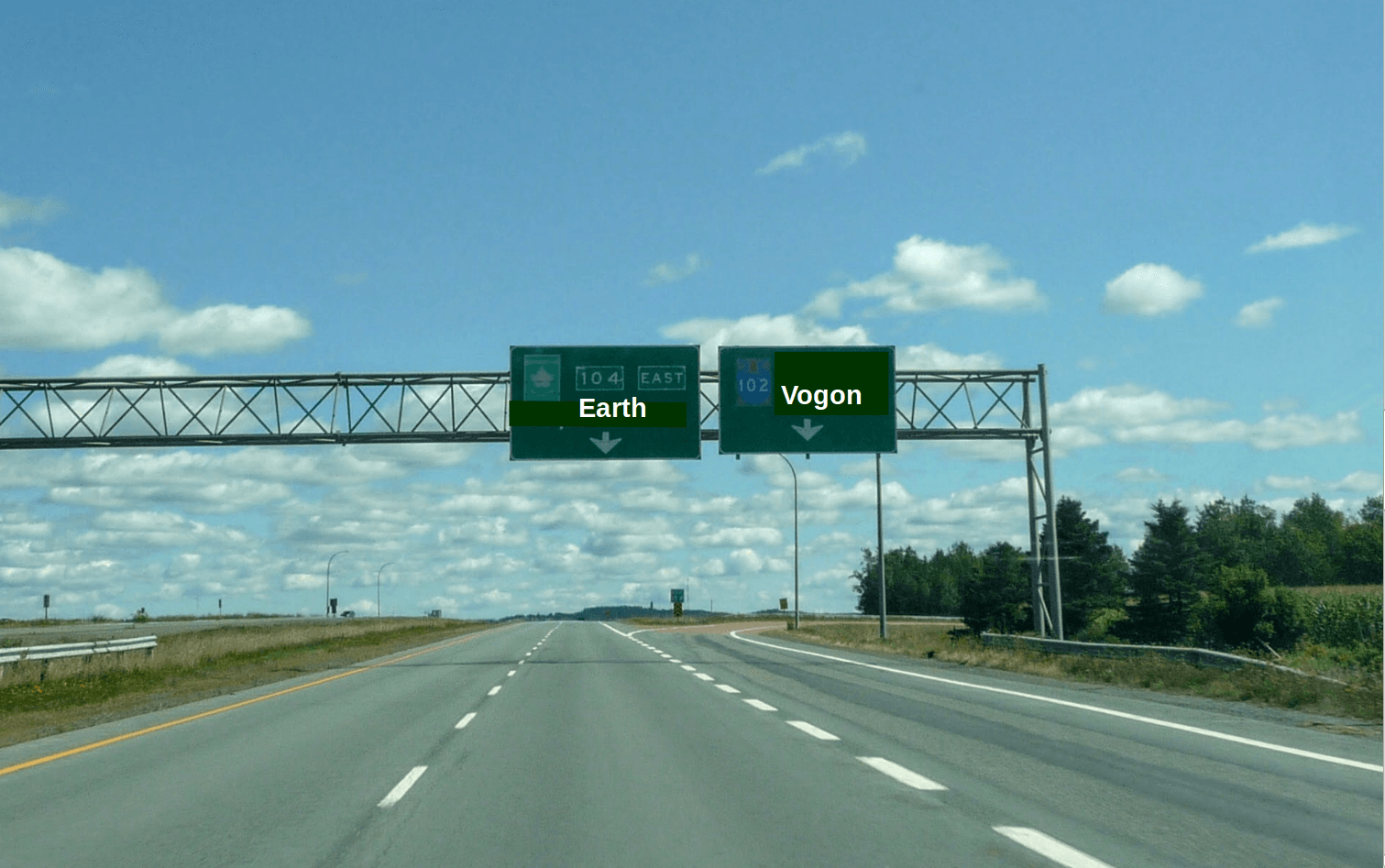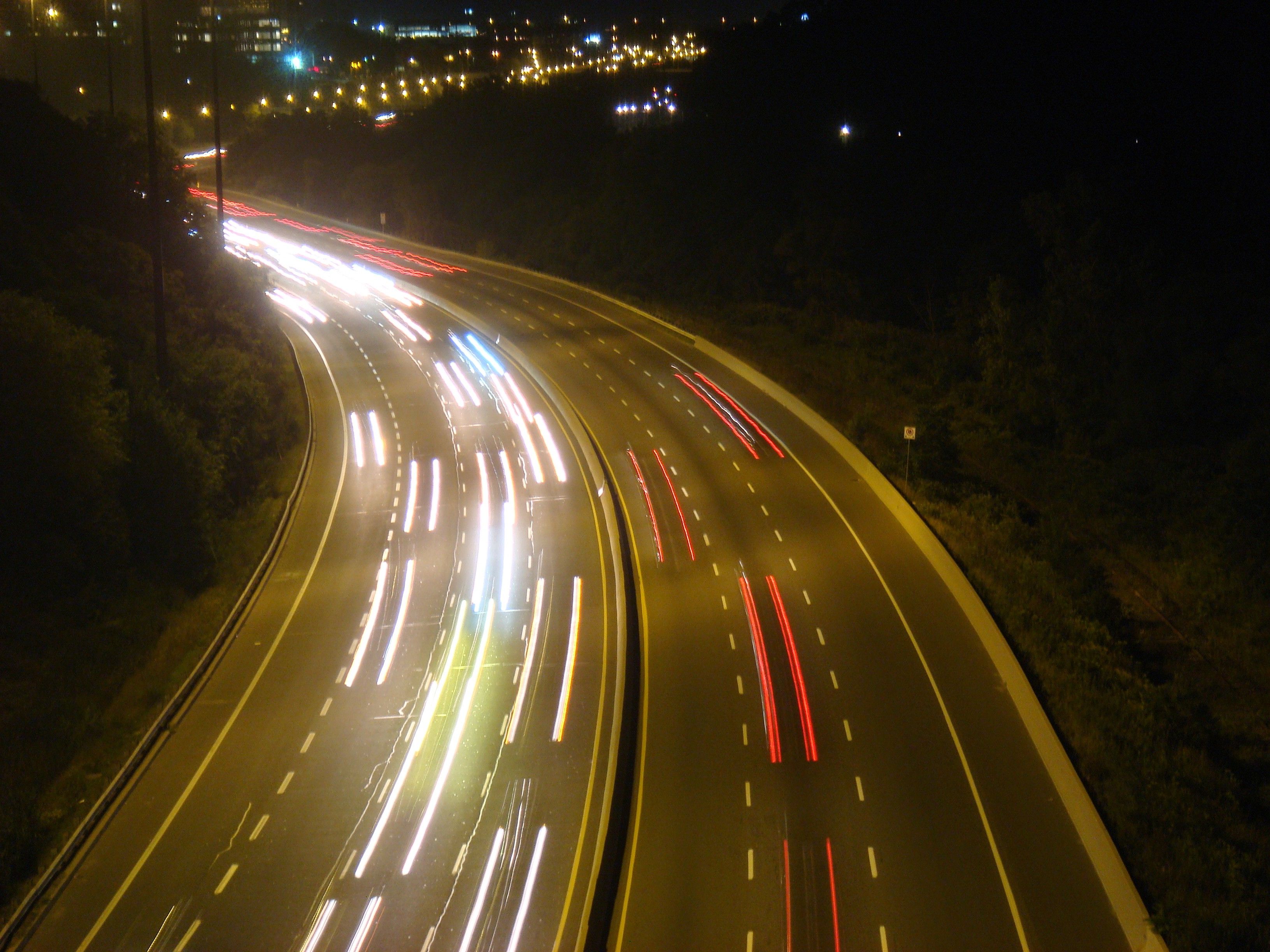Cost Benefit Analysis (CBA) provides infrastructure decision-makers with information on what to build, how to design, build, and finance a project and how to prioritize when funds are scarce. What more could we ask from this over 100-year old tool?

As we rush headlong towards possible infrastructure asset sales, public private partnerships, tax credit incentives, and other get-someone-rich-quick schemes we need to make sure we are doing so with our eyes wide open. Transparency is key as we give away the crown jewels of, or loan the keys to, our public infrastructure. CBA can add that transparency and fight potential nepotism.
CBA adds up the costs and benefits over time of an infrastructure project but CBA can also add transparency. This can be done in two ways that I’ll explain in two posts. This is the first instalment. Part two is here.
Who’s better off, who’s not?
Just because the galaxy as a whole is better off from an the Vogon’s intergalactic highway does not mean everyone is happy.

In fact, Arthur Dent and pretty much all of Earth was pretty upset about it according to Douglas Adams. So CBA should look at who benefits and who is hurt. CBA’s process does include stakeholders: “1) List alternative projects/programs; 2) List stakeholders; 3) Select measurement(s) and measure all cost/benefit elements…” But in the CBA process we seem to have forgotten about people after this (economists will remind me about the compensation principle that in theory we could compensate earth for being blown up by the Vogons).
Profits at what cost?
Some of us have got the message that the economy is part of the society which in turn is part of the environment. Others, more Vogon-like, think we can degrade the environment at the expense of the clean air, water, and the climate. Ecological economics has taught us how a triple bottom line – people, planet, and profit – can add value by emphasizing the societal and environmental. Economists with much more credibility than this one have called for a triple bottom line (TBL) of financial, social and environmental (Jeffrey Sachs).
Triple Bottom Line Cost Benefit Analysis (TBL-CBA) highlights the societal and environmental offsets to the financial. If people are getting rich at the expense of others we need to know. And if the lucre is coming from the environment we want a heads up.
TBL-CBA can shine a light into who benefits and who doesn’t. While its probably too much to ask the Vogons to use it, it is not over the top to ask our governments to.

For those still wondering about Vogons
“They are one of the most unpleasant races in the galaxy – not actually evil, but bad tempered, bureaucratic, officious and callous. They wouldn’t even lift a finger to save their own grandmothers from the Ravenous Bugblatter Beast of Traal without an order, signed in triplicate, sent in, sent back, queried, lost, found, subjected to public enquiry, lost again, and finally buried in soft peat for three months and recycled as firelighters. If you want to get a lift from a Vogon, forget it. They are vile and ill tempered.”
0 Comments